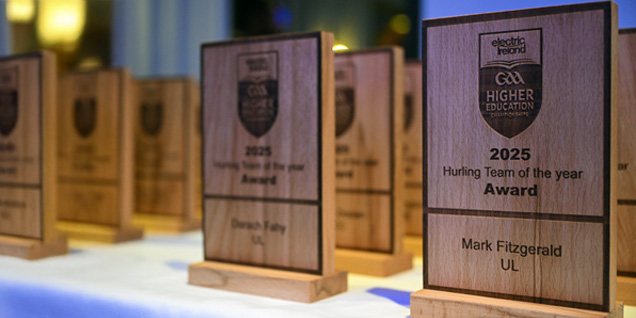How to save energy on your home appliances

Our homes have become hybrid spaces in the last two years. Our homes are now our office, our canteen, our entertaining spaces as well as our safe havens. Being at home more often means we are naturally using our home appliances more – especially our kitchen appliances.
But working from home doesn’t have to mean rising energy bills. There are plenty of small changes we can make that will have a big impact. We’ve broken down all the everyday appliances room by room to show you how you can save energy, and money.
Energy-saving tips for the kitchen
The ovenThe oven is one of the most expensive appliances in the home to run – using an electric oven can cost around 2kWhs (approx. €0.40) per hour of cooking. A fan-assisted oven is more efficient than a conventional oven as it uses a fan to circulate heat around food as it cooks. There are some simple measures you can take to reduce energy costs on your oven:
- You can lose about 20% of heat when you open the oven door so don’t do it unless you must. The oven will have to reheat itself and that will require more energy. Keep the oven door clean so you can look in.
- Keep your oven clean to reduce cooking time (clean once a month if the oven is used regularly).
- Replace door seals if they are worn or damaged as this can decrease the efficiency of your oven.
- Get the best use out of your energy – cook as much as possible in one go by using the shelves.
- Alternatively, you can consider using a slow cooker. Modern slow cookers consume as little as 150 watts per hour at a low setting. That’s less than €0.07 per hour of cooking.
The hob
You can also reduce costs when using your hob:
- Use the right size pot for what you are cooking. There is no need to use the big pot for a small amount of food, it will just take longer to heat up.
- Use lids on pots as they contain the heat and speed up the cooking process.
- Use only as much water as needed to cover the food you’re cooking. Even better – boil the water in your kettle before using it for cooking. This will speed up cooking time.
- Use pots and pans that cover the whole of the size of the ring – using a ring that’s too big for the pot wastes energy, while a pot that is too big for a small ring will take longer to heat.
- Turn off the rings when the food is almost cooked and use the residual heat to finish cooking.
- Appliances such as double steamers allow you to layer up on vegetables, saving money and time.
Microwaves
Microwave ovens are energy-efficient cooking appliances. It is better to use a microwave for smaller meals instead of your oven or stove. Microwave ovens may be efficient for defrosting, but it is far better let frozen food defrost in the fridge – which might take longer but requires no extra energy at all.
Kettles and toasters
When using the kettle, only boil as much water as you need, so if you’re making a quick cuppa, you don’t have to fill the kettle to the top. And if you’re making toast, use the toaster rather than toasting under the grill.
Fridges and freezers
Ensure you’re closing the fridge door in good time – and taking everything you need out at once, because for every 10–20 seconds the fridge door is open, it takes 45 minutes for the fridge to cool back down to its original temperature. The fridge or freezer must work extra hard and draw more energy to cool warm or hot food, so avoid putting hot food into the fridge. Thawing food in the fridge is better for keeping your food safe to eat and keeps the fridge cool.
Dishwasher
By running your dishwasher at a lower temperature setting you will save on your energy costs, as most of the energy used by a dishwasher is for heating the water. Make sure you fill the dishwasher before switching it on to avoid wasting water and energy. By using the dishwasher during off-peak times (11pm-8am) you will save on CO2 emissions from power stations.
Bring me back to Interactive Home
Living room / Home office
TVs and laptops
It’s a hard habit to crack, but leaving your TV on when you’re not watching it can use about 20% of your household energy. Ensure you turn the TV off completely when you leave the room if you’re not planning on returning to watch it very soon after.
With many of us working from home full-time now, we often have our laptops plugged in all day. Your laptop battery will last almost an entire day when fully charged. Ensure you’ve only plugged the laptop in when you are charging it. When you are finished work in the evening, ensure you’ve unplugged the laptop, as devices on ‘standby’ typically make up about 7% of a home’s energy usage.
Utility room
Washing machine
Run your washing machine on a cooler cycle, 30°C is fine for most clothing. Like the dishwasher, the most energy used in the washing machine is to heat the water. Only putting the washing machine on when you have a full load will save energy.
Tumble dryer
Tumble dryers are one of the biggest energy users when it comes to appliances in the home. On dry days, try to dry clothes on a washing line or a clothes horse.
The Electric Ireland Interactive Home is a one-stop shop for all your energy-saving needs. Explore the home to find out which appliances you can save energy on. Reducing energy means doing your bit for the environment - and your pocket.
Read more: How to save energy when heating your home
Read more: How to save energy on everyday household items
Follow Electric Ireland on social media: Twitter: @electricireland Facebook: @ Electric Ireland Instagram: @electricireland



